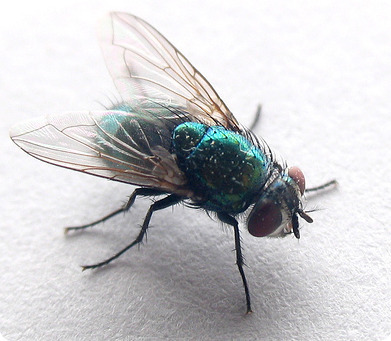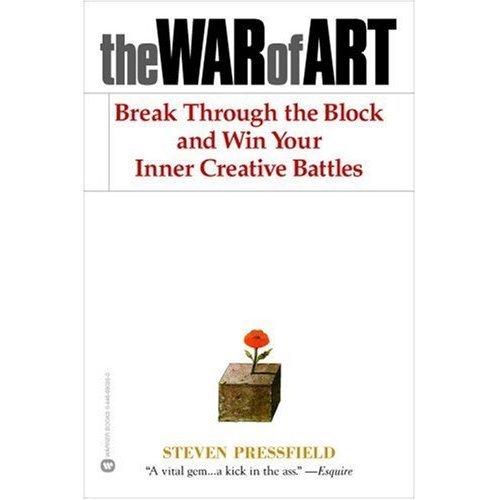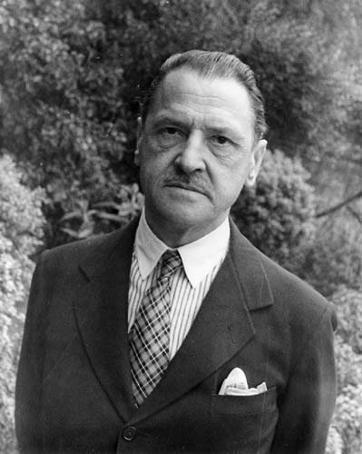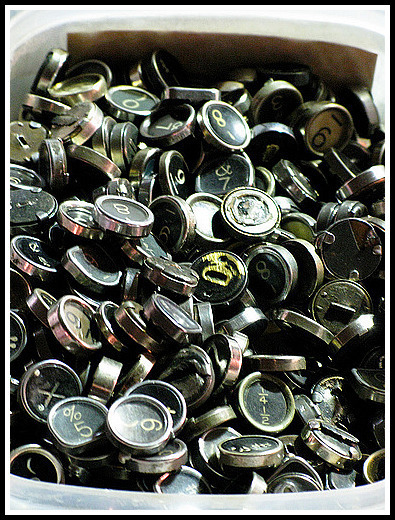Alex George's Blog, page 13
September 1, 2011
Galleys Ahoy
On Monday morning, the nice UPS man knocked on my office door with a package from New York. In it were five galleys, or Advanced Reading Copies, or ARCs, of A GOOD AMERICAN. These are, essentially, final softcover versions of the book (it will be published in hardback) complete with (brilliant) cover art, embarrassing author photo, blurbs, and what-have-you. Penguin have produced a ton of these for circulation to reviewers, booksellers, bloggers, and other influential book-lovers in the hope that those lovely people might be prompted to write or talk about the book in advance of its publication in February. I believe the technical term is creating a buzz.
I posted here about the very special moment when you finally hold something resembling a book in your hands for the first time. Needless to say, it's something else again when the book looks dangerously like the finished product. I know I'm biased, but I think they look rather splendid:

So, now these babies have begun to make their way out into the publishing world. I've already spoken to a couple of indie booksellers who have received their copies. This is when the fun really starts. Up until now it has been those nice people at Penguin saying how much they like the book – but then, the cynic/realist/gloomy bastard in me says: well, they would, wouldn't they? That is, after all, their job. Now, though, my little book will come under the unblinking eye of some of the smartest, best-read people on the planet.
Anxious, moi?!?







August 30, 2011
Take Cover!
I am very proud finally to be able to show you the US cover for A GOOD AMERICAN.
I had discussed various possible themes with Amy soon after the text was finished, but really had no idea what to expect when this little electronic file plopped into my inbox. I was, I can admit now, a little apprehensive. But I absolutely adore this. I think it's elegant and classy and I am very proud of it.
Not much more to say, really, other than I hope you like it, too. Do let me know what you think.

August 27, 2011
Maine

Earlier this week I arrived back in Missouri after a blissful week in Maine. From ME to MO. What a difference a letter makes.
I wrote a lot, read a lot, climbed a few mountains, and ate an awful lot of delicious fresh seafood. My cottage was on a secluded cove near Acadia National Park. It was a one-room wooden building, with no telephone, no internet, and about thirteen paces from the pebbled beach where I spent a lot of time watching birds swoop down low over the still water, hunting for fish, and then glide upwards in graceful parabolas over the skyline of dark green pines that stretched into the distance.
It was utterly perfect.
And what was even better was that I was able to call it all work. Because my new novel, praise be, is set in Maine. So this was all, you understand, in the name of selfless research. So, um, please ignore all those other posts I've written about research being an irrelevance; if it involves trips like this one then I am here to tell you that research is absolutely crucial. (And yes, tax-deductible, too.)
For reasons I am not yet ready to divulge, my new book had to be set in either Maine or Rhode Island. I vacillated between the two for some time, but finally chose Maine after we spent a few days there last summer. It wasn't an easy decision – when people think of Maine, many have a certain image already in their heads. That's not so much the case when it comes to Rhode Island, unless you're a Blossom Dearie fan. By choosing Maine, then, I have created a slightly larger obstacle for myself, as I will have to overcome readers' preconceived notions of the place.
But now I'm in no doubt that I made the right decision. I have fallen hopelessly in love. I want to move there, right now. I loved everything about the place, from its ridiculous beauty to the friendliness of the natives, to the juiciness of the blueberries. I felt completely at home – and as a displaced ex-pat Brit with homesickness issues, that tells you something. It will be a tremendous (and probably impossible) challenge to capture and convey all that I found so enchanting, but that's all part of the fun. And I know that my honeyed view as a summer visitor would look very different in mid-February. Maine winters are long and hard. I need to find that out for myself, too. But if you are going to try and really get to know a place – well enough to write about it in a novel – it helps if you adore it to begin with.
So, I hope this is a love affair that is only just beginning. One thing is clear. Many, many more trips back will be needed if I am to do Maine justice. It's a tough job, I know, but someone has to do it. The photo below is the view from the back porch of my cabin. I know, right?








August 25, 2011
UK News
I'm just back from a wonderful and refreshing vacation in Maine, which I will write about shortly, but I wanted to share a little bit of exciting news before then.
The UK edition of A GOOD AMERICAN now has a publication date. It is scheduled to be published by Fig Tree Books, an imprint of Penguin UK, on August 2, 2012. Those of you in England, please mark your calendars. It's too early to know what sort of festivities may or may not be planned, but we will be looking to celebrate in some way, shape or form – and I hope that those of you on the other side of the big pond will be able to join in the fun.
In the meantime, the US pre-publication process is hotting up, with trips to Minneapolis and possibly also further afield planned in the near future. I will keep everyone posted as these things develop.







August 12, 2011
Friends in Funny Places
My name is Alex, and I am a lawyer.
I began my first legal job in a large firm in London almost exactly nineteen years ago, and I've practiced law in England, France, and the United States. It's not something that I talk about much on this blog, because (a) this is a blog about writing, mainly, (b) I want you all to like me and (c) being a lawyer is not good blog material, frankly. But something happened yesterday in my so-called "professional" world that I wanted to share.
What happened was, at about four o'clock, there was a knock on my office door, and these were delivered:

Freshly-baked, hand-made, chocolate chip cookies, still hot from the oven. They were delivered with a little bottle of milk on the side.
Talk about something making your day.
I had met with a client earlier that afternoon. I am very fond of this particular client. We had spent some time looking at various ways of addressing a problem she had, trying to work out the best way of resolving the issue. After much discussion, I finally got to to the bottom of it, gave her what she needed to move things forward, and that was the business side of matters concluded. Then my client, who knows a little bit about some of the knottier things going on in my personal life, asked me how I was.
I wasn't, I have to confess, prepared for the question. Caught a little off-guard, I'm afraid my usual veneer of professional rectitude slipped somewhat and I opened up more than perhaps I should have. The client listened, wonderfully sympathetically, and offered some warm words of comfort. I was very grateful – it is, after all, my job to provide counsel to the client, not the other way around.
You might imagine my astonishment when, after all that, the cookies arrived a couple of hours later. I was incredibly touched. It was a wonderfully generous act, beautiful in its simplicity and sincerity. The cookies came with a note: "You find friends in funny places."
I didn't finish the cookies, by the way. There are some left, and even though they're no longer warm, they're still delicious, all the more so for having come from such a rich act of kindness. Even though much of the world appears to be going to hell right now, there are still good, kind people out there. Thank heavens.
August 8, 2011
What Matters

Yesterday I returned to Missouri after a wonderful week with my children in San Francisco, where we stayed with my sister and her lovely family.
Living in mid-Missouri, going to San Francisco is, understandably, always a bit of an event. Weeks ahead of time, we raid the library for travel guides and plan what to do. This trip we went to the wonderful California Academy of Sciences, did an open-topped bus ride through the city and over the Golden Gate Bridge, and ate dim sum in Chinatown. We also went down to San Jose (I drove; no prizes for guessing what I was whistling the whole way) to see an old-fashioned circus, with clowns, dare-devil motorcycle stunts, and acrobats. More prosaically, I took my son to see the last Harry Potter film while my daughter went with her beloved older cousins to get her nails done. We had a grand old time of it, and none of us wanted the trip to end.
Yesterday afternoon, on the drive back from Kansas City airport to Columbia, I asked the children what their favorite part of the vacation was. My daughter, at six, resists the concept of "favorite". She likes to be allowed several options. I have explained that this rather defeats the whole concept, but she remains resolutely unimpressed (no doubt rightly) by my attempts to instill intellectual rigor into our discussions. I think her multi-colored (and already chipped) fingernails were a highlight, as was the gift of a battered old bunny from one of her cousins. My son enjoyed the tour bus and exploring Fisherman's Wharf. They both liked the hour's trampolining that we did one morning, even if everyone was extremely sore afterwards.
But what was most heartening was that their responses did not center around where we had gone, or what we had done. What mattered to my children was that we had done things with my sister's family. The children have five cousins; three live in California, two live in England. We don't see each other as often as any of us would like, but when we do get together, it's an immense lovefest which is far more rewarding (for parents and children) than any amount of worthy cultural excursions or entertaining trips. And this makes me very, very happy.
Personally, my favorite memory of the trip was probably the most mundane one of all. It was on the first day, after we had left the California Academy of Sciences. We'd been in the museum for more than four hours and had walked through Golden Gate Park planning to hop back on to the streetcar that had taken us there. The kids and I all had a bit of museum fatigue, and as we passed a delightful-looking cafe I suggested we stopped for a rest and a little refreshment.
We sat at a table on the sidewalk. It was 30 degrees cooler than it had been in Missouri and utterly blissful. While I gulped down much-needed coffee and my daughter merrily spilled her chocolate milkshake over herself, we sat back and watched the most astonishing parade of dogs go by. I have never seen so many dogs in a city. My children were in heaven – they adore hounds of all shapes and sizes. And so we sat, and drank our drinks, and enjoyed the sunshine, and cooed at the passing canine population. I could have stayed there all day.
This was our first trip as a newly-minted, reconstituted family of three. And that moment – just the three of us, happy, tired, and really doing not that much - was about perfect.
Who needs museums and bridges and all that stuff, when you have family?

July 29, 2011
Music for the Ages
Finally, a respite from all the advice. Now it's my turn to ask for your help. (And, I know. You never asked for mine.)
I've been having a fine old time lately enjoying Spotify, a music website that has (finally) been made available over here in the US. It is an amazing resource and I have been discovering lots of wonderful new music as well as relishing some old favorites that I haven't heard for years.
One of the great things about Spotify is the ability for people to create playlists that others can enjoy. When I was in New York a while ago meeting with the Penguin marketing and publicity people, we thought – since there is a lot of music in the book – that it would be a fun idea to create a playlist that people could access to listen to some of the music that I talk about. That playlist has now been created, although it is very much a work in progress. I don't think I can put a link to it here, but if you have signed up for spotify and are on twitter or facebook, drop me a line and I will send you the link.
Anyway, yesterday I posted a question on twitter and facebook about bluegrass music (something I know very little about, save for occasional trips to the Moniteau County Fair, where grizzled old men with big hats and straggly beards unsmilingly pluck at their fiddles), and I was overwhelmed by the generous and knowledgeable response. It became clear that, technically, "bluegrass" didn't really exist at the time the story is set. There was much discussion (we got to over 50 comments!) about precisely what sort of music might have been played – thank you, Mary and Richard. It was an illuminating discussion.
Anyway, for those of you who are interested, I thought it might be helpful if I posted an extract from the book which talks about the sort of musical acts that turned up at the local tavern in Beatrice, Missouri, to play their tunes. This being 1919, Prohibition was right around the corner – hence the goodbye party.
The last year of the Nick-Nack's life was an extended goodbye party. People drank as if every evening would be their last. Business had never been better. Joseph began to help when he could, sweeping floors, clearing tables and washing glasses. The customers were kind to him. They slipped small coins into his pocket and pressed crumpled cigarettes on him with a benign wink. Joseph began to understand that the tavern traded in more than simply drink. Other commodities were also on offer: companionship, community, and the comfort of ritual. He became familiar with the nightly rhythms of hope and despair, as the world slowly collapsed around the men who drank there. They wept, fought, slept, and stared longingly at his mother, before stumbling out into the darkness at the end of each night.
Meanwhile, there was music everywhere. The Nick-Nack was reveling in an extended, marvelous swan song. Just about anyone who walked through the door with an instrument under his arm could secure a night's work. There were brass ensembles, string quartets, an endless procession of guitars and fiddles.
Joseph enjoyed the bands, but it was the singers he remembered the most. A woman came from Quincy, Illinois, squeezed into a tight satin dress and a slash of scarlet across her mouth. She winked and hollered her way through a honky-tonk repertoire of old bordello songs, bursting with lewd innuendo. She had the saddest eyes Joseph had ever seen. There was a huge ogre of a man, nearly seven feet tall with a long black beard down to his chest, who carried his double bass on to the stage as if it were a child's violin. He glared furiously at the audience, and then began to croon plaintive love songs in a screeching falsetto, accompanying himself with occasional low percussive thwacks on the bass strings. Identical twins from Moberly hunched over their banjos and sang mournful songs of longing and regret. The long necks of their instruments pointed away from each other, slender horns on a double-headed beast.
Does this inspire anyone to suggest any other music I might add to the playlist – bordello songs included?!?
July 28, 2011
Finding Time to Write, Part 3 – Prevarication/Getting Started
So, to business.
If for no other reason than in a doubtless doomed attempt to impress you all, let's start with a quote from the mercurial French writer, Jules Renard, writing in his journal: "A fly alighting on the sheet of white paper was excuse enough to give himself the right to be idle. He did not write, for fear of disturbing the fly."
Sound familiar?
We will always find reasons to avoid writing.
We will procrastinate, prevaricate, delay, and then we will look up more words in the Thesaurus.
And then we will stall, defer action, drag our heels, and be dilatory.
And when we all do this, people, we are not writing.
We don't say: "I'm never going to write my novel." Because that would never do.
However we do say: "I'm going to write my novel tomorrow."
Except of course we don't. Because we say the same thing again the next day. And so it goes on.
William Goldman said: "The easiest thing in the world is not to write." And he had a point.
Are you scared on the blank page, as Hemingway so famously was? Are you great at making notes, mapping out plans, drafting synopses, creating your characters' back stories, but reluctant to start putting actual words down on the page? Well, you are not alone.
We all do it – putting off the moment, I mean. I've been plotting and planning my new novel for ages. I found all sorts of really good reasons not to begin. I wrote here about the delicious promise of a blank page, and there is no doubt that before you set out on the journey, all that potential is very beguiling – and it seems a shame to spoil all that promise by, you know, actually writing anything.
But at some point you need to take a deep breath, and start writing. Because if you're a writer, you write. So you'd better stop making excuses and jump in.
It doesn't matter if it's not great. (I've just completed the first chapter of my new novel and I have no intention of reading it for days, if not weeks, because I know I will get disheartened at how rubbish those ten pages are.) It doesn't have to be perfect.
Here's Margaret Atwood, who knows a thing or two about writing:
"If I waited for perfection, I would never write a word."
So don't aim too high. Don't expect Pulitzer Prize stuff right out of the gate. Just take a deep breath and just jump in. Get something down. It's invigorating and intoxicating. You'll probably find all sorts of strange and interesting things happen. (Within three lines of starting the first chapter of my new book all of my carefully planned outlines lay in tatters as I found myself writing about horse flies. These things happen. Best to go with the flow.) You can always go back and revise the hell out of it later. But you won't even be able to do that until you have some words on the page to mess about with.
My friend Beth Hoffman offered up these fine words of advice elsewhere on the internet: "Don't fret about getting all the details into first draft; a manuscript is like a cake, let it bake and cool, then go back and decorate!"
So, go bake your cake.
Next up: Getting all efficient on yo' ass: now you've carved out some time and have begun to write – how to stay focused and make the most of your precious time.
July 26, 2011
Finding Time to Write, Part 2 – Required Reading
A while ago my friend Tim Miles gave me a gift. It was a book – THE WAR OF ART by Steven Pressfield. This is what it looks like:

It is a short and brilliant book. And if you are serious about writing, you should read it.
Pressfield writes in a refreshing, no-bullshit way about the creative process. He beautifully punctures some of the more romantic (and less helpful) notions that are sometimes associated with a life in the creative trenches. He tells it like it really is. For example: it's bloody hard work. You need to treat your creative project, whatever it is, exactly as you would a job. He reserves special scorn for the "flame outs" who talk a good game but quickly lose their enthusiasm when the hard slog begins.
I was pleased (and yes, perhaps just a little smug) to discover that I was already doing an awful lot of the things that Pressfield urges his readers to do if they are serious about any creative endeavor. One thing I learned a long time ago: the most important quality that a writer needs is not a felicitous turn of phrase or a devilish way with metaphor. The thing you need most is stamina. Once the initial excitement of a project has worn off, once you are no longer quite so consumed with delight by your characters and their quirky foibles, you still need to haul your ass over to the computer and keep on typing. But damn, it's hard.
Pressfield calls this inclination to avoid sitting down and doing the work RESISTANCE. It is the implacable force that prevents you from writing – you know, the one that suddenly gives you an urge to mow the lawn or switch on the television as soon as you have a moment to sit down and write. Often our excuses are linked to external factors beyond our control – our jobs, children, other commitments, etc. – but really, Pressfield says, it all comes from within ourselves. The good news is that once you know your enemy, it is much easier to defeat it.
I actually gave my copy of Pressfield's book to a friend of mine, who now carries it with her wherever she goes. It's that kind of book. (And since I no longer own a copy, I may inadvertently quote from it from time to time in these posts. It's that kind of book, too.) You can dip into it anywhere and find little gems that may inspire you.  One of my favorites is a quote from Somerset Maugham, which resonated particularly strongly with me.
One of my favorites is a quote from Somerset Maugham, which resonated particularly strongly with me.
He said: "I only write when inspiration strikes. Fortunately it strikes every morning at nine o'clock sharp."
Nice point, beautifully made: don't wait for inspiration to strike you. You have to go and search for it. And if you set a routine, and do the work, it will come. Perhaps not every day, but hang around long enough, it'll show up.
So: go and buy this book. Really. It will help.
(Oh, and by the way. Check out the threads on Mr. Maugham there. I tell you what, writers don't dress like they used to. He was sharp. Nice stripe/plaid action going on there.)
Next post: procrastination, and how to deal with it. (Assuming I ever get around to writing it, that is.)
July 23, 2011
Finding Time to Write, Part 1
A couple of years ago I was asked to give a talk to the Mid-Missouri Writers' Guild about how to find time to write. I suppose I was quite well qualified to waffle on about this, since – at the time – I was running my own law firm, overseeing operations of the largest outside water park in mid-Missouri (both practically full time jobs) and also working on my novel for a couple of hours every day. Oh, and I was also a husband and dad.
 The talk seemed to go quite well, and for ages I kept thinking that I should try and take what I'd said (complete with pretty slides) and turn it into a series of posts for this blog. When I tentatively raised the possibility the other day on twitter, the response was gratifyingly enthusiastic. It seems that this remains the principal obstacle that many writers face: how does one carve out enough time from a hectic schedule to write? How many times have you heard people say they'd love to write a book, only to shrug and say they simply don't have the time?
The talk seemed to go quite well, and for ages I kept thinking that I should try and take what I'd said (complete with pretty slides) and turn it into a series of posts for this blog. When I tentatively raised the possibility the other day on twitter, the response was gratifyingly enthusiastic. It seems that this remains the principal obstacle that many writers face: how does one carve out enough time from a hectic schedule to write? How many times have you heard people say they'd love to write a book, only to shrug and say they simply don't have the time?
Here's the thing: if you really, really want to write a book, you can find the time.
Oh yes you can.
It's really not that hard. You just need to be determined, and a bit bloody-minded about it. You need to recognize the obstacles before you for what they are, and then deal with them accordingly.
The internet is heaving with advice for would-be writers on everything from what chair to sit on to what sort of cheese you should serve at your launch party, and most matters in between. I'm a little skeptical, I will admit, about most of this stuff, because writing is such a solitary and intensely personal experience. What works for one person may be a disaster for the next.
So with that caveat firmly in mind, in this first post of the series I am going to tell you how I have written all five of my novels. I am not suggesting for a moment that this is going to work for anyone else, but it seems like an obvious place to start. In future posts I will try and extrapolate some general principles that might help you decide what works for you. None of this is rocket science; far from it. If I was able to work it out, then so can you.
What Worked for Me
When I first decided that I wanted to write a book, I was working as a lawyer in one of the largest corporate law firms in the City of London. It was a high-pressured job, to say the least. We frequently worked weeks of 70 hours or more and often would pull all-nighters to get deals done by client-imposed deadlines. Given that I never knew when I might get home in the evening, I quickly realized that if I wanted a regular time to write, the only option was to get up early in the morning. It was the only time I knew I would be at home and undisturbed.
So that is what I did. I set my alarm clock for five o'clock every morning. Every day I hauled myself out of bed and yawned in front of the computer, wondering whether this was really such a good idea. But I was there. And while I was there, I pecked away at the keyboard, putting words down, one after the other. I didn't give up. I kept at it. Every morning. And the astonishing thing was that in the end (after an awful lot of mornings, admittedly) there were enough words for a book.
And, in a funny sort of way, that's really all there is to it.
Books do not write themselves. Nobody produces anything unless he or she puts in the necessary time at the coalface, chipping away. So forget technical issues about voice or metaphor or any of that crap. Don't even worry if you have the necessary talent. None of that matters if you don't sit down and write. None of it matters unless you have a plan. Work out when you can write, and once you've found a time that works for you, guard it with your life. Make it a priority. Brook no interference or intrusion. It should be sacrosanct.
Then all you have to do is keep at it. Of which more later.
























